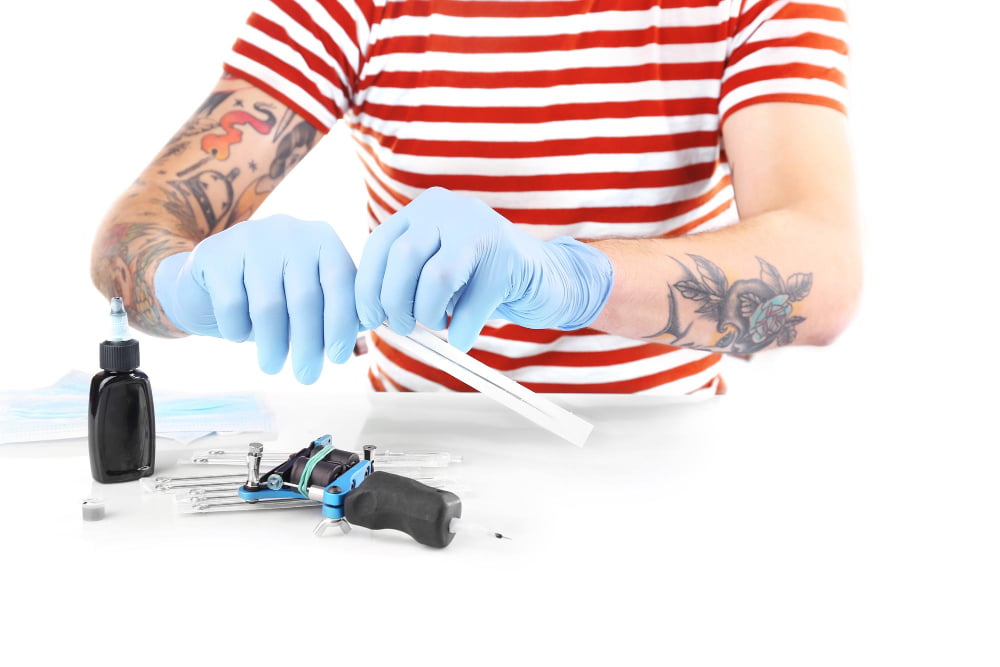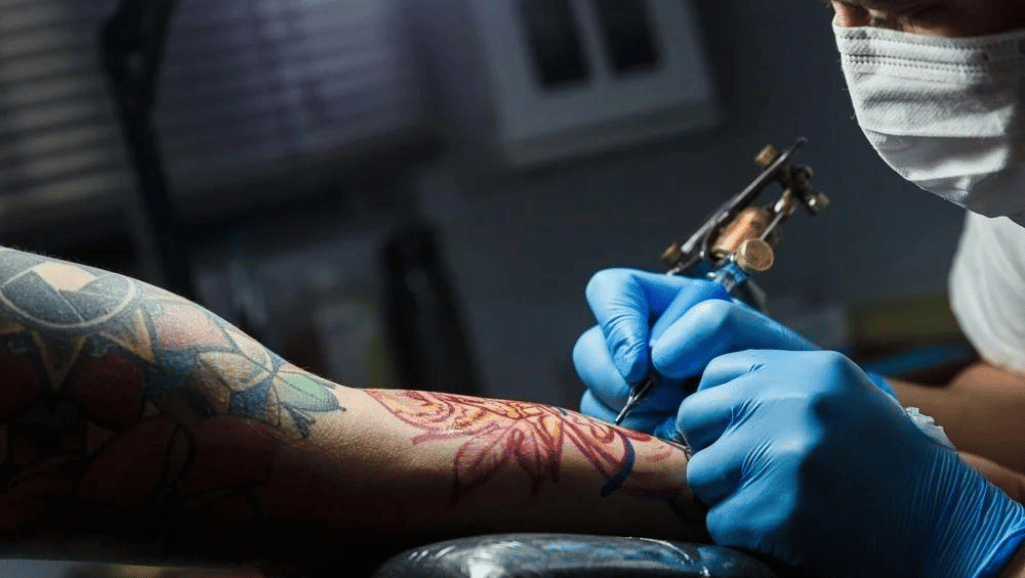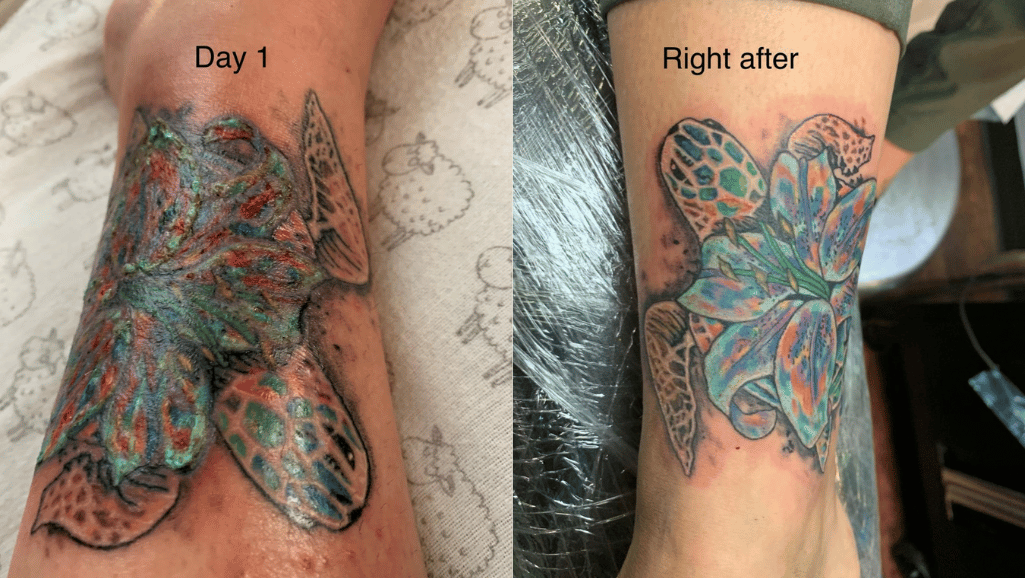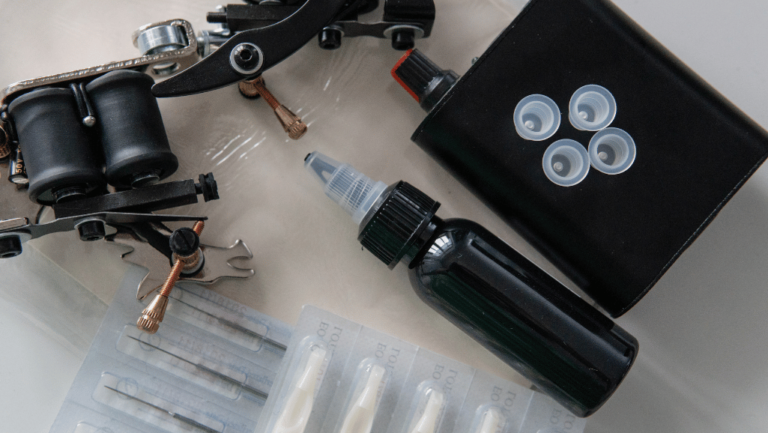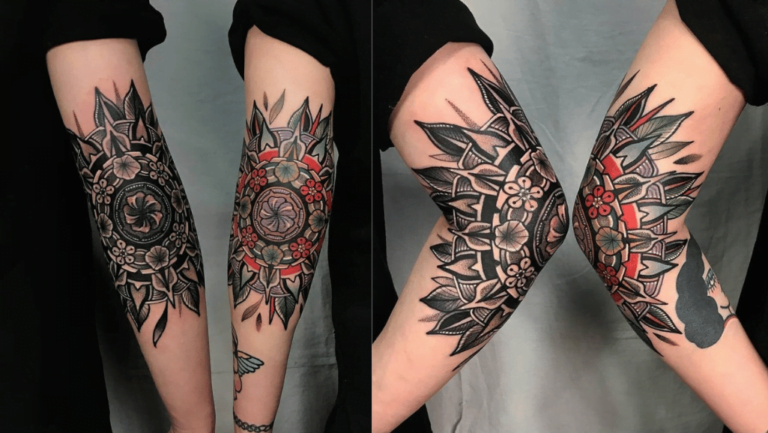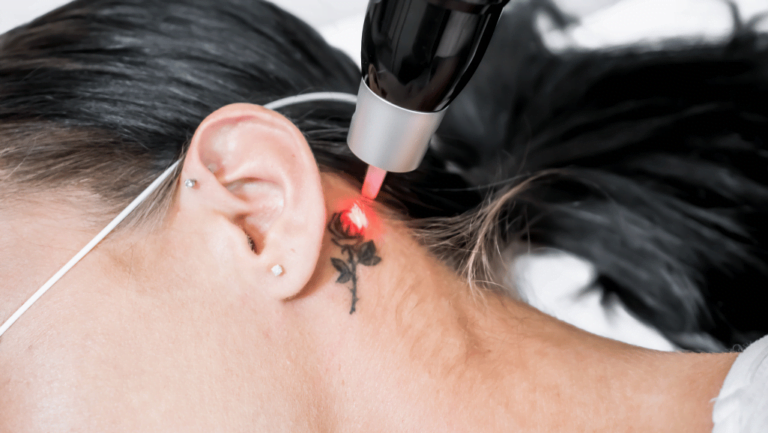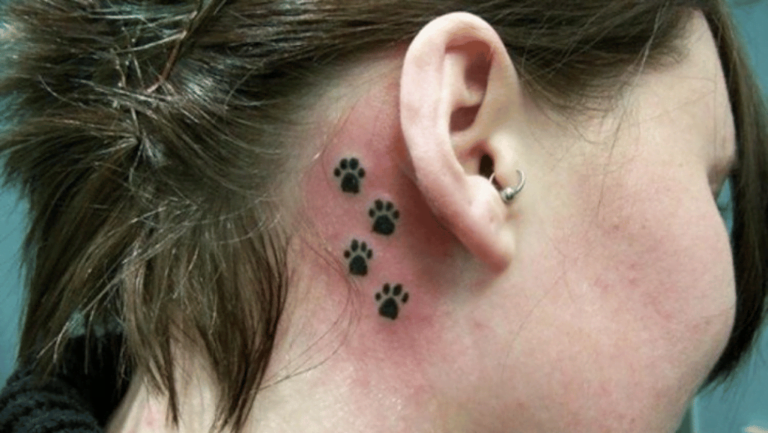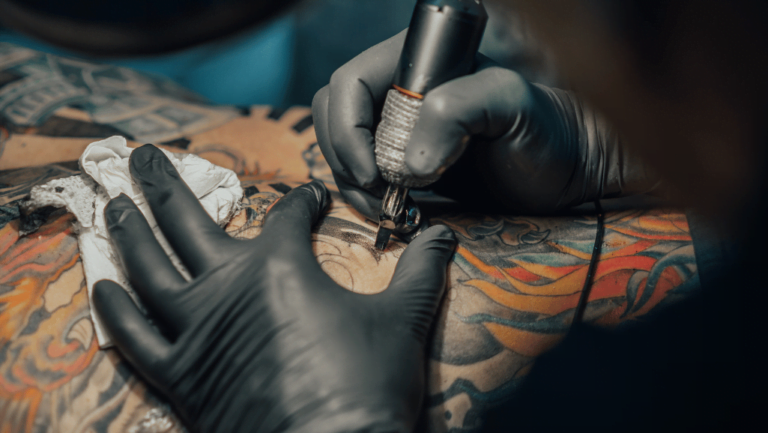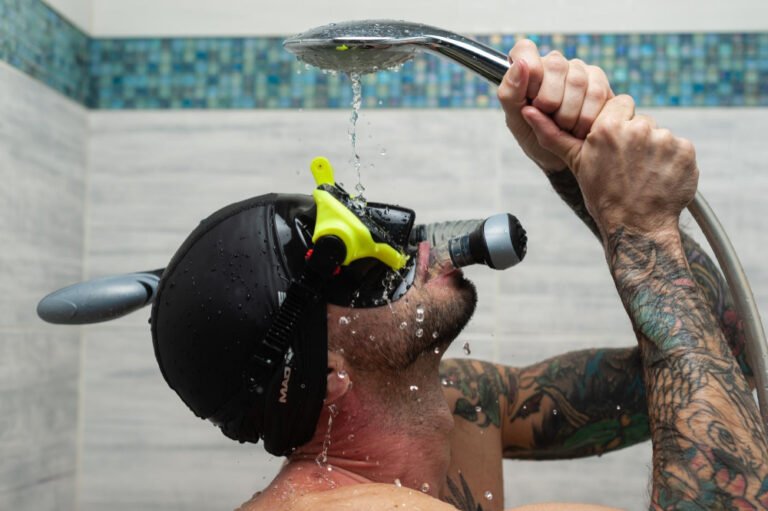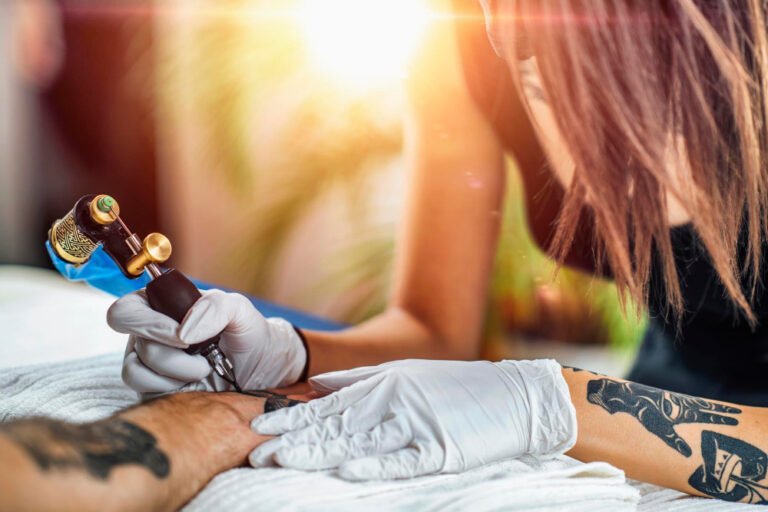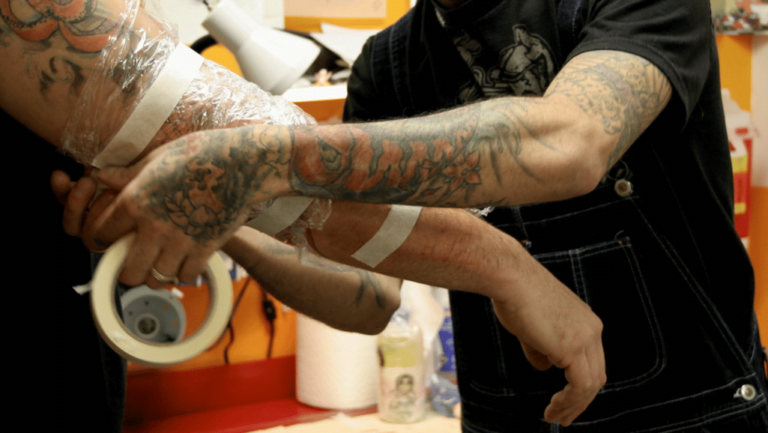Considering getting a tattoo while on antibiotics? It’s important to prioritize your health and safety. The FDA regulates tattoo inks to protect consumers from infections and allergic reactions. However, there are precautions you should take before making a decision about body art and medication.
Key Takeaways:
- Consult with a healthcare professional before getting a tattoo while on antibiotics or any other medication
- Be aware of the potential risks of ink contamination and allergic reactions
- Select a licensed tattoo studio with properly trained artists and sterile equipment
- Follow appropriate aftercare instructions for a safe tattoo experience
- Consider the long-term impact of the tattoo on your body and potential changes, such as weight gain
Tattoo Ink and Safety Concerns
When considering getting a tattoo, it is crucial to prioritize tattoo ink safety to prevent potential infections and allergic reactions. Contrary to popular belief, tattoo ink can be contaminated with bacteria, mold, or other harmful microorganisms, even if the container appears sealed or claims to be sterile. This contamination can happen during the manufacturing process or through improper handling and storage.
The FDA, which regulates tattoo inks, has not approved any pigments specifically for injection into the skin for cosmetic purposes. This lack of approval means there is a risk associated with using these inks. While most tattoo inks are generally safe, there have been reports of adverse reactions such as redness, swelling, and rash after getting a tattoo.
More serious infections may require treatment with antibiotics and may lead to extended medical care. Scar tissue and granulomas, which are small knots or bumps that can form around the tattooed area, are also potential complications. It’s important to note that the severity of these reactions can vary from person to person, and not everyone will experience them.
If you experience any concerns or adverse reactions after getting a tattoo, it is crucial to seek medical attention and contact a healthcare professional. They can assess the situation and provide appropriate treatment or guidance. Remember, your health and safety should always come first when it comes to body art.
Common Allergic Reactions from Tattoo Ink:
- Redness and inflammation around the tattooed area
- Swelling and raised bumps
- Itching and irritation
- Rash or hives
- Pain or tenderness
- Excessively warm skin
Tattoo ink safety is not something to be taken lightly. If you have any concerns or experience any of these symptoms after getting a tattoo, it is important to consult a healthcare professional for proper evaluation and treatment.
| Tattoo Ink Safety Precautions | Allergic Reactions | Contaminated Ink |
|---|---|---|
| Choose a reputable tattoo artist and studio that prioritize hygiene and sterilization. | Seek medical attention if you experience any adverse reactions. | Understand that even sealed or labeled “sterile” ink containers may still be contaminated. |
| Ask about the source of the tattoo ink and if it adheres to safety and quality standards. | Inform your artist of any known allergies or sensitivities to certain substances. | Be aware of potential bacterial or mold contamination and its associated risks. |
| Follow proper aftercare instructions provided by your tattoo artist to minimize the risk of infection. | Monitor your tattoo’s healing process and lookout for any signs of infection or abnormal reactions. | Report any adverse reactions or suspected contaminated ink to the FDA or local health authorities. |
By understanding the potential risks associated with tattoo ink and taking appropriate precautions, you can have a safer tattoo experience and reduce the likelihood of complications.
Medications and Tattoo Ink Interactions
When it comes to getting a tattoo, it’s important to take into account the medications you are currently taking. Different medications can have varying effects on the tattooing process, the appearance of the tattoo, and your overall healing and recovery. Here are some medications commonly taken and their potential interactions with tattoo ink:
Blood Thinners
Individuals taking blood thinners, such as Warfarin or aspirin, should be cautious when getting a tattoo. These medications can increase the risk of excessive bleeding during the tattooing process and affect the ink’s settling in the skin. To minimize complications, it’s crucial to consult with your healthcare provider before proceeding with a tattoo.
Immune Response Modifiers
Immune response modifiers, such as medications used for autoimmune conditions like rheumatoid arthritis or psoriasis, can impact the healing process and the longevity of the tattoo’s color. These medications may affect the body’s immune system response, potentially interfering with tattoo healing. It’s important to discuss this with your healthcare provider beforehand.
Antibiotics and Allergies
Some antibiotics can increase the risk of allergic reactions to tattoo ink. If you are currently taking antibiotics and planning to get a tattoo, it’s essential to inform your healthcare provider and tattoo artist. They can provide guidance on the safest approach and potentially recommend an alternative schedule for your tattoo.
Hormonal Medications
Although further research is needed, hormonal medications, such as birth control pills or hormone replacement therapy, could potentially affect the settling of tattoo ink. Hormonal changes in the body can impact various bodily processes, including the healing and appearance of tattoos. Consulting with your healthcare provider is advised.
Discussing your medication regimen with a healthcare professional before getting a tattoo is crucial. They can provide personalized advice and guidance tailored to your specific situation. In some cases, they may recommend adjusting your medication schedule or offer alternatives to minimize potential risks.
Remember, always prioritize your health and well-being when considering a tattoo. Understanding the potential interactions between medications and tattoo ink can help you make informed decisions and ensure the best possible outcomes for your body art.
Risks and Precautions of Getting a Tattoo
When considering getting a tattoo, it’s important to be aware of the potential risks involved. The process of getting a tattoo involves breaking the skin, which can lead to various health concerns. Understanding these risks and taking necessary precautions is essential for a safe and positive tattoo experience.
Tattoo Risks
There are several risks associated with getting a tattoo. These risks include:
- Allergic Reactions: Tattoo ink can cause allergic reactions in some individuals. Certain pigments in the ink may trigger an immune response, resulting in symptoms such as itching, redness, and swelling.
- Skin Infections: If the tattoo equipment or ink is contaminated or if proper sterilization techniques are not followed, there is a risk of developing skin infections. Symptoms of infection may include pain, redness, and pus-filled blisters.
- Bloodborne Diseases: Bloodborne diseases, such as hepatitis B and C, can be transmitted if the tattoo equipment is not properly sterilized. It is important to ensure that the tattoo artist follows strict hygiene practices and uses sterilized equipment.
- Skin Reactions to MRI: In some cases, tattooed areas of the skin may react during MRI exams, causing discomfort or a tingling sensation. While rare, it’s important to inform healthcare providers of any tattoos before undergoing an MRI.
Taking precautions to minimize these risks is crucial for ensuring tattoo safety. It is always recommended to choose a reputable tattoo artist and studio that prioritize hygiene and follow proper sterilization protocols. Additionally, consulting with a healthcare professional before getting a tattoo can help identify any potential risks or concerns based on your individual medical history.
While the risks associated with getting a tattoo are relatively low, it is important to be informed and take the necessary steps to protect your health and well-being. With proper precautions and care, you can enjoy the artistry and personal expression of a tattoo while minimizing any potential risks.
Considerations and Safety Steps Before Getting a Tattoo
Before making the decision to get a tattoo, it is important to consider a few key factors. Taking the time to properly assess your readiness will help ensure a positive experience and minimize any potential regrets in the future.
Decision Making
Getting a tattoo is a personal choice that should not be rushed. If you find yourself unsure or hesitant, it may be wise to wait until you feel more confident in your decision. Take the time to reflect on the design, placement, and long-term implications of your tattoo. This will help ensure that you choose something meaningful and timeless, rather than a passing trend.
Readiness
Being in the right mindset and physical condition is crucial before getting a tattoo. It is important to avoid getting inked while under the influence of alcohol or drugs. These substances can impair decision-making abilities and affect your ability to properly care for your new tattoo during the healing process.
Consulting with friends who already have tattoos can provide valuable insights and tips. They can share their experiences, recommend talented artists or studios, and help you navigate the entire process.
Considering the location of your tattoo is essential. Keep in mind that certain areas may be more sensitive, while others may be subject to changes in the body due to weight gain, aging, or pregnancy. Choosing a location that will stand the test of time will ensure that you continue to enjoy your tattoo for years to come.
Safety Steps
When it comes to tattoo safety, taking the necessary precautions is crucial. Start by selecting a licensed tattoo studio that follows strict hygiene protocols. Ensure that the artists are properly trained and have a good reputation for their work. This will significantly reduce the risk of infections or complications during the tattoo process.
When visiting the studio, observe if the artist uses gloves and if all equipment is properly sterilized. Sterility is vital to prevent the transmission of infections and bloodborne diseases.
Following appropriate aftercare instructions is vital for the proper healing of your tattoo. Your artist should provide you with detailed guidelines on how to care for your new tattoo, including how to clean and moisturize it. Adhering to these instructions will help prevent infections and ensure the longevity of your tattoo’s appearance.
| Safety Steps Before Getting a Tattoo |
|---|
| Research and choose a reputable tattoo studio with licensed artists |
| Consult with friends or individuals experienced with tattoos |
| Avoid getting tattooed while under the influence of alcohol or drugs |
| Consider the location of your tattoo and potential body changes |
| Follow proper aftercare instructions provided by the artist |
Conclusion
Getting a tattoo while on antibiotics raises important considerations for safety and health. It is essential to be aware of the potential risks of ink contamination, allergic reactions, and skin infections. Medications can also interact with tattoo ink, affecting the healing process and the tattoo’s appearance. Consulting with a healthcare professional before getting a tattoo while on medication is crucial. By understanding these interactions and taking necessary precautions, individuals can make informed decisions and ensure a safe and positive tattoo experience.
FAQ
Can you get a tattoo while on antibiotics?
Are there any safety precautions to consider for getting a tattoo while on antibiotics?
What are the safety considerations for tattoo ink?
What are the risks of getting a tattoo?
What precautions should be taken before getting a tattoo?
What are the potential interactions between medications and tattoo ink?
Forhad
Forhad's writing is not just about the artistry of tattoos or the latest trends in the industry; it's an exploration of the deep-rooted connections people have with their tattoos, reflecting personal narratives, cultural histories, and moments of transformation. Through a mix of in-depth features, personal narratives, and insightful analyses, he sheds light on the multifaceted nature of tattooing, revealing the emotional and cultural layers that lie beneath the surface.


